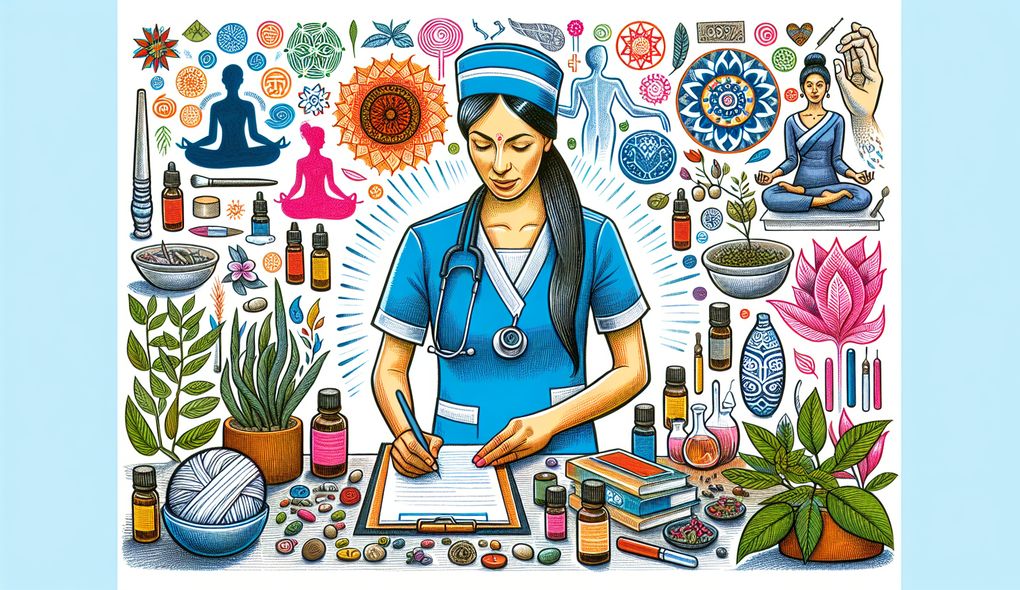Give an example of a time when you had to navigate ethical considerations in your role as a holistic nurse practitioner.
INTERMEDIATE LEVEL

Sample answer to the question:
One instance where I had to navigate ethical considerations as a holistic nurse practitioner was when a patient requested a certain alternative therapy that I knew had potential risks. I had to balance the patient's autonomy and desire for holistic healing with my duty to ensure their safety. I engaged in a thorough discussion with the patient, explaining the potential risks and benefits of the therapy. I also brought in a colleague who specialized in that therapy to provide an unbiased perspective. Ultimately, the patient decided to proceed with the therapy after fully understanding the risks involved. Throughout the process, I maintained open and honest communication, respecting the patient's autonomy while upholding my ethical responsibility to prioritize their well-being.
Here is a more solid answer:
In my role as a holistic nurse practitioner, I encountered a situation where a patient expressed a desire to use a specific complementary therapy that had a risk of interactions with their conventional medications. I conducted a comprehensive clinical assessment to evaluate the patient's overall health status and medication regimen. With my knowledge of holistic health practices, I explained the potential risks associated with the therapy and discussed alternative options that would be safer for the patient. Additionally, I collaborated with the patient's primary care physician to ensure a coordinated approach to their care. We engaged in a shared decision-making process, prioritizing the patient's well-being while respecting their autonomy. To maintain accurate and organized records, I documented the discussions, assessments, and treatment plans in the patient's electronic health record, ensuring continuity of care and supporting interdisciplinary collaboration.
Why is this a more solid answer?
The solid answer expands on the basic answer by providing specific details about the clinical assessment, collaboration with colleagues, and record-keeping aspects. It demonstrates the candidate's proficiency in clinical assessment, knowledge of holistic health practices, ability to collaborate with other healthcare professionals, and strong organizational and record-keeping skills. However, it can further improve by providing more specific examples of alternative therapies and their potential benefits for the patient.
An example of a exceptional answer:
As a holistic nurse practitioner, I encountered an ethical dilemma when a pediatric patient with chronic pain requested a complementary therapy known for its potential benefits but lacked robust scientific evidence to support its use in pediatric populations. To navigate this situation, I conducted a thorough clinical assessment, considering the patient's medical history, current symptoms, and previous treatments. I consulted relevant research articles and engaged in discussions with experts in the field to gain a deep understanding of the therapy's potential risks and benefits. I also collaborated with the patient's parents and involved them in the decision-making process, providing them with a comprehensive explanation of the therapy and its potential effects. Additionally, I documented all discussions, assessments, and shared decision-making processes in the patient's medical record, ensuring transparency and facilitating interdisciplinary collaboration. Ultimately, we collectively decided to explore alternative evidence-based therapies that could alleviate the patient's pain while minimizing potential risks. This experience reinforced the importance of evidence-based practice and collaborative decision-making in providing ethical and holistic care.
Why is this an exceptional answer?
The exceptional answer goes above and beyond by presenting a complex ethical scenario involving a pediatric patient and a complementary therapy lacking scientific evidence. It showcases the candidate's exceptional clinical assessment skills, integration of evidence-based practice, proficiency in research literature review, effective communication with parents, and commitment to collaborative decision-making. The answer demonstrates a deep understanding of ethical considerations, holistic care principles, and the importance of documenting decisions and fostering interdisciplinary collaboration. One area that could be further enhanced is providing more specific details about the alternative evidence-based therapies explored and their potential benefits for the patient.
How to prepare for this question:
- Familiarize yourself with different ethical frameworks and principles commonly used in healthcare.
- Develop a solid understanding of holistic health practices and complementary therapies, including their potential risks and benefits.
- Reflect on personal experiences where you faced ethical dilemmas in healthcare and how you navigated them.
- Stay updated with current research literature and evidence-based practices in the field of holistic nursing.
- Practice discussing ethical considerations and decision-making processes in hypothetical scenarios to enhance your communication skills.
What are interviewers evaluating with this question?
- Clinical assessment and patient care planning.
- Knowledge of holistic health practices.
- Proficiency in implementing complementary therapies.
- Ability to educate and motivate patients.
- Interdisciplinary collaboration.
- Cultural competence in dealing with diverse patient populations.
- Strong organizational and record-keeping skills.

